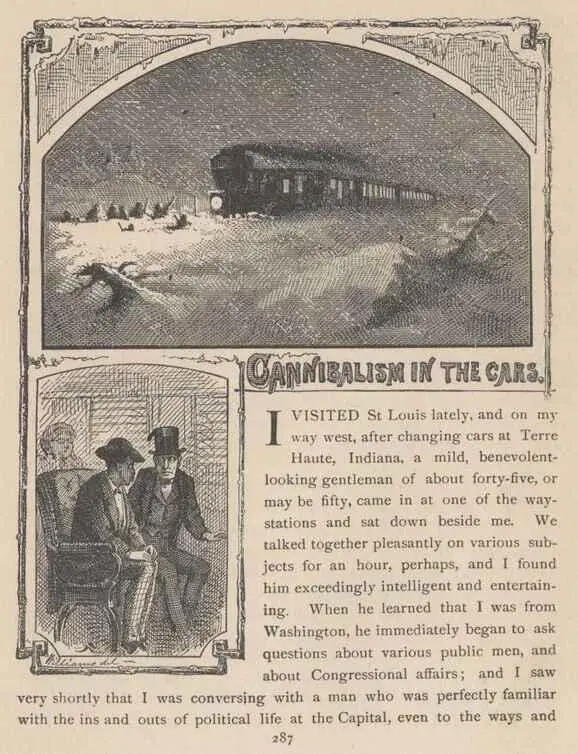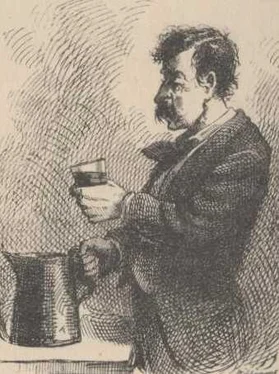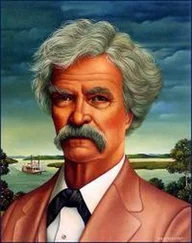Mark Twain - Sketches New and Old
Здесь есть возможность читать онлайн «Mark Twain - Sketches New and Old» весь текст электронной книги совершенно бесплатно (целиком полную версию без сокращений). В некоторых случаях можно слушать аудио, скачать через торрент в формате fb2 и присутствует краткое содержание. Год выпуска: 2004, Жанр: Классическая проза, Юмористическая проза, на английском языке. Описание произведения, (предисловие) а так же отзывы посетителей доступны на портале библиотеки ЛибКат.
- Название:Sketches New and Old
- Автор:
- Жанр:
- Год:2004
- ISBN:нет данных
- Рейтинг книги:5 / 5. Голосов: 1
-
Избранное:Добавить в избранное
- Отзывы:
-
Ваша оценка:
- 100
- 1
- 2
- 3
- 4
- 5
Sketches New and Old: краткое содержание, описание и аннотация
Предлагаем к чтению аннотацию, описание, краткое содержание или предисловие (зависит от того, что написал сам автор книги «Sketches New and Old»). Если вы не нашли необходимую информацию о книге — напишите в комментариях, мы постараемся отыскать её.
Sketches New and Old — читать онлайн бесплатно полную книгу (весь текст) целиком
Ниже представлен текст книги, разбитый по страницам. Система сохранения места последней прочитанной страницы, позволяет с удобством читать онлайн бесплатно книгу «Sketches New and Old», без необходимости каждый раз заново искать на чём Вы остановились. Поставьте закладку, и сможете в любой момент перейти на страницу, на которой закончили чтение.
Интервал:
Закладка:
I said to myself:
"Now I just knew how it would be—that whisky cocktail has done the business for me; I don't understand any more than a clam."
And then I said aloud:
"I—I—that is—if you don't mind, would you—would you say that over again? I ought—"
"Oh, certainly, certainly! You see I am very unfamiliar with the subject, and perhaps I don't present my case clearly, but I—"
"No, no-no, no-you state it plain enough, but that cocktail has muddled me a little. But I will—no, I do understand for that matter; but I would get the hang of it all the better if you went over it again—and I'll pay better attention this time."
He said, "Why, what I was after was this."
[Here he became even more fearfully impressive than ever, and emphasized each particular point by checking it off on his finger-ends.]
"This vein, or lode, or ledge, or whatever you call it, runs along between two layers of granite, just the same as if it were a sandwich. Very well. Now suppose you go down on that, say a thousand feet, or maybe twelve hundred (it don't really matter) before you drift, and then you start your drifts, some of them across the ledge, and others along the length of it, where the sulphurets—I believe they call them sulphurets, though why they should, considering that, so far as I can see, the main dependence of a miner does not so lie, as some suppose, but in which it cannot be successfully maintained, wherein the same should not continue, while part and parcel of the same ore not committed to either in the sense referred to, whereas, under different circumstances, the most inexperienced among us could not detect it if it were, or might overlook it if it did, or scorn the very idea of such a thing, even though it were palpably demonstrated as such. Am I not right?"
I said, sorrowfully: "I feel ashamed of myself, Mr. Ward. I know I ought to understand you perfectly well, but you see that treacherous whisky cocktail has got into my head, and now I cannot understand even the simplest proposition. I told you how it would be."
"Oh, don't mind it, don't mind it; the fault was my own, no doubt—though I did think it clear enough for—"
"Don't say a word. Clear! Why, you stated it as clear as the sun to anybody but an abject idiot; but it's that confounded cocktail that has played the mischief."
"No; now don't say that. I'll begin it all over again, and—"
"Don't now—for goodness' sake, don't do anything of the kind, because I tell you my head is in such a condition that I don't believe I could understand the most trifling question a man could ask me.
"Now don't you be afraid. I'll put it so plain this time that you can't help but get the hang of it. We will begin at the very beginning." [Leaning far across the table, with determined impressiveness wrought upon his every feature, and fingers prepared to keep tally of each point enumerated; and I, leaning forward with painful interest, resolved to comprehend or perish.] "You know the vein, the ledge, the thing that contains the metal, whereby it constitutes the medium between all other forces, whether of present or remote agencies, so brought to bear in favor of the former against the latter, or the latter against the former or all, or both, or compromising the relative differences existing within the radius whence culminate the several degrees of similarity to which—"
I said: "Oh, hang my wooden head, it ain't any use!—it ain't any use to try—I can't understand anything. The plainer you get it the more I can't get the hang of it."
I heard a suspicious noise behind me, and turned in time to see Hingston dodging behind a newspaper, and quaking with a gentle ecstasy of laughter. I looked at Ward again, and he had thrown off his dread solemnity and was laughing also. Then I saw that I had been sold—that I had been made a victim of a swindle in the way of a string of plausibly worded sentences that didn't mean anything under the sun. Artemus Ward was one of the best fellows in the world, and one of the most companionable. It has been said that he was not fluent in conversation, but, with the above experience in my mind, I differ.
CANNIBALISM IN THE CARS

I visited St. Louis lately, and on my way West, after changing cars at Terre Haute, Indiana, a mild, benevolent-looking gentleman of about forty-five, or maybe fifty, came in at one of the way-stations and sat down beside me. We talked together pleasantly on various subjects for an hour, perhaps, and I found him exceedingly intelligent and entertaining. When he learned that I was from Washington, he immediately began to ask questions about various public men, and about Congressional affairs; and I saw very shortly that I was conversing with a man who was perfectly familiar with the ins and outs of political life at the Capital, even to the ways and manners, and customs of procedure of Senators and Representatives in the Chambers of the national Legislature. Presently two men halted near us for a single moment, and one said to the other:
"Harris, if you'll do that for me, I'll never forget you, my boy."
My new comrade's eye lighted pleasantly. The words had touched upon a happy memory, I thought. Then his face settled into thoughtfulness—almost into gloom. He turned to me and said,
"Let me tell you a story; let me give you a secret chapter of my life—a chapter that has never been referred to by me since its events transpired. Listen patiently, and promise that you will not interrupt me."
I said I would not, and he related the following strange adventure, speaking sometimes with animation, sometimes with melancholy, but always with feeling and earnestness.
"On the 19th of December, 1853, I started from St. Louis on the evening train bound for Chicago. There were only twenty-four passengers, all told. There were no ladies and no children. We were in excellent spirits, and pleasant acquaintanceships were soon formed. The journey bade fair to be a happy one; and no individual in the party, I think, had even the vaguest presentiment of the horrors we were soon to undergo.
"At 11 P.M. it began to snow hard. Shortly after leaving the small village of Welden, we entered upon that tremendous prairie solitude that stretches its leagues on leagues of houseless dreariness far away toward the Jubilee Settlements. The winds, unobstructed by trees or hills, or even vagrant rocks, whistled fiercely across the level desert, driving the falling snow before it like spray from the crested waves of a stormy sea. The snow was deepening fast; and we knew, by the diminished speed of the train, that the engine was plowing through it with steadily increasing difficulty. Indeed, it almost came to a dead halt sometimes, in the midst of great drifts that piled themselves like colossal graves across the track. Conversation began to flag. Cheerfulness gave place to grave concern. The possibility of being imprisoned in the snow, on the bleak prairie, fifty miles from any house, presented itself to every mind, and extended its depressing influence over every spirit.
"At two o'clock in the morning I was aroused out of an uneasy slumber by the ceasing of all motion about me. The appalling truth flashed upon me instantly—we were captives in a snow-drift! 'All hands to the rescue!' Every man sprang to obey. Out into the wild night, the pitchy darkness, the billowy snow, the driving storm, every soul leaped, with the consciousness that a moment lost now might bring destruction to us all. Shovels, hands, boards—anything, everything that could displace snow, was brought into instant requisition. It was a weird picture, that small company of frantic men fighting the banking snows, half in the blackest shadow and half in the angry light of the locomotive's reflector.
Читать дальшеИнтервал:
Закладка:
Похожие книги на «Sketches New and Old»
Представляем Вашему вниманию похожие книги на «Sketches New and Old» списком для выбора. Мы отобрали схожую по названию и смыслу литературу в надежде предоставить читателям больше вариантов отыскать новые, интересные, ещё непрочитанные произведения.
Обсуждение, отзывы о книге «Sketches New and Old» и просто собственные мнения читателей. Оставьте ваши комментарии, напишите, что Вы думаете о произведении, его смысле или главных героях. Укажите что конкретно понравилось, а что нет, и почему Вы так считаете.











